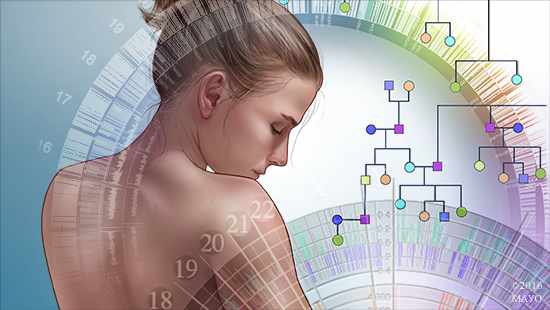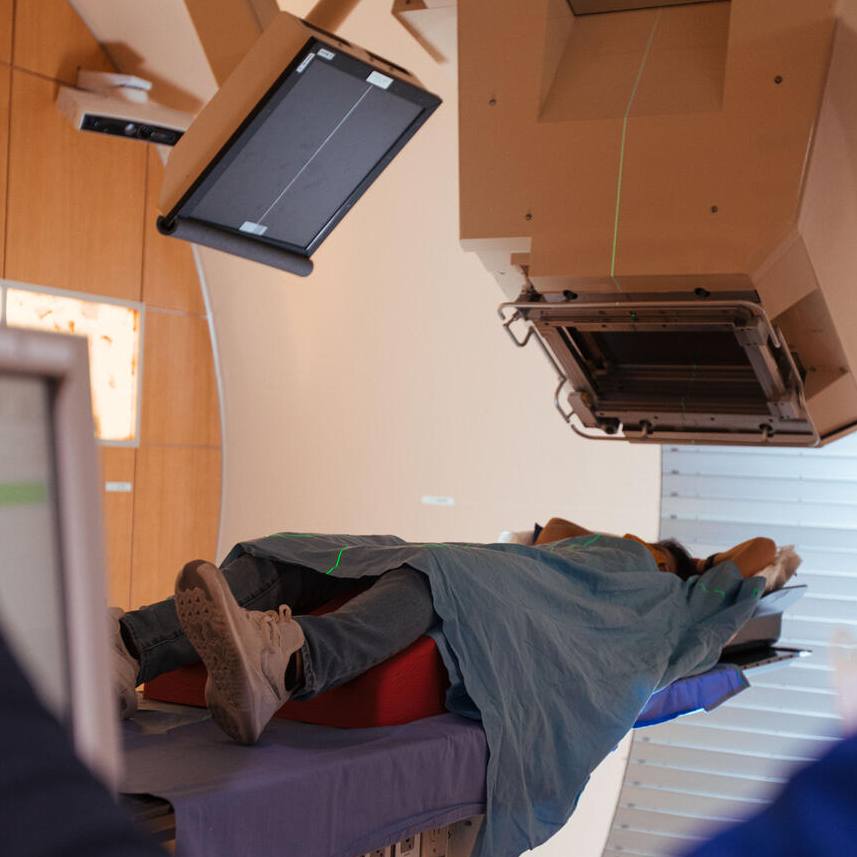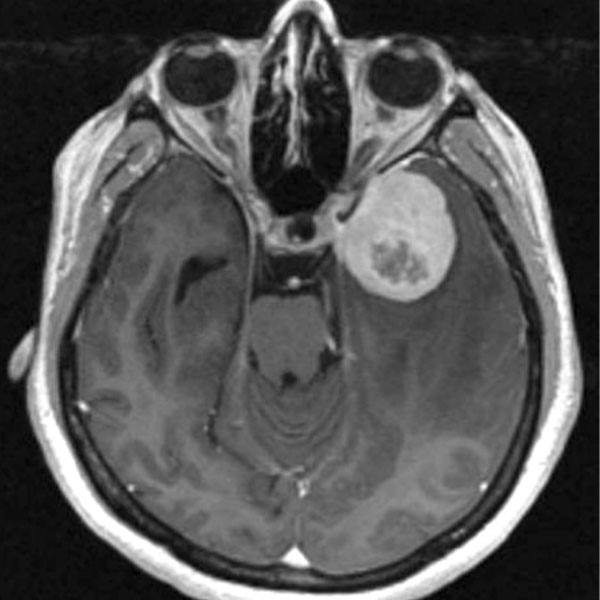-
Mayo Clinic to test vaccine designed to provide immune response against early breast lesions
 JACKSONVILLE, Fla. — Only about 35 percent of precancerous breast lesions morph into cancer if untreated, but physicians cannot identify which lesions are potentially dangerous. So all women diagnosed with ductal carcinoma in situ undergo traditional therapy of surgery and possibly hormonal therapy and radiation. Now, Mayo Clinic researchers are about to test a vaccine that they hope will replace standard therapies and prevent recurrence for some, if not all, these patients.
JACKSONVILLE, Fla. — Only about 35 percent of precancerous breast lesions morph into cancer if untreated, but physicians cannot identify which lesions are potentially dangerous. So all women diagnosed with ductal carcinoma in situ undergo traditional therapy of surgery and possibly hormonal therapy and radiation. Now, Mayo Clinic researchers are about to test a vaccine that they hope will replace standard therapies and prevent recurrence for some, if not all, these patients.
Keith Knutson, Ph.D., director of the Discovery and Translation Labs Cancer Research Program at Mayo Clinic’s campus in Florida, has received a $3.7 million grant from the U.S. Department of Defense to conduct a phase II clinical trial that will test a vaccine designed to establish lifelong immunity against development of these precancerous lesions.
If ultimately successful, the vaccine could substitute for current ductal carcinoma in situ therapy and may become part of a routine immunization schedule in healthy women.
“We ultimately want to eliminate ductal carcinoma in situ, which means preventing disfiguring surgeries and toxic therapies in the 60,000 women who receive this diagnosis every year in the U.S.,” says Dr. Knutson, who designed the vaccine.
Eliminating ductal carcinoma in situ also would reduce the overall breast cancer burden significantly, he adds. “Ductal carcinoma in situ is a significant health problem, accounting for about 20 percent of U.S. cases of breast cancer.”
Beginning in 2017, Dr. Knutson and his colleagues at the Mayo Clinic campuses in Florida and Rochester, Minnesota, will test the vaccine in 40-45 patients diagnosed with ductal carcinoma in situ. These patients will be treated with the vaccine first. Six weeks later, they will receive surgery (lumpectomy or mastectomy) and other standard therapy. During the initial six weeks, physicians will monitor patients to see if ductal carcinoma in situ lesions reacted to the vaccine.
“The hope is that they disappear,” says Dr. Knutson. If successful, advanced clinical trials could be designed to test the possibility that vaccination may be a “safe alternative to conventional and problematic” treatment for ductal carcinoma in situ, he says.
The new grant is the second that Dr. Knutson and his team have received from the U.S. Department of Defense to test a breast cancer vaccine. In 2015, they received a five-year $13.3 million U.S. Department of Defense Breakthrough Award to fund a phase II clinical trial testing a different breast cancer vaccine that Dr. Knutson had developed. That vaccine is designed to prevent the recurrence of triple-negative breast cancer, which is a subset of breast cancer for which there are no targeted therapies. A phase I trial of the vaccine found it to be safe.
The vaccine to be tested on ductal carcinoma in situ also has been tested in a phase I clinical study. This vaccine is targeted against human epidermal growth factor 2 (HER-2), an oncogene known to play a role in the development and progression of an aggressive subtype of breast cancer known as HER-2 positive.
Dr. Knutson suspects that excess HER-2 proteins are expressed in all subtypes of breast cancer, including the most common one: estrogen-positive breast cancer. He says that the phase I study of the HER-2 vaccine elicited an immune response in all tested individuals. The vaccine is designed to stimulate production of T cells that target initial development of ductal carcinoma in situ.
“We don’t know if the vaccine works just on HER-2 breast cancer,” he says. “We believe that once an immune response is generated against the ductal carcinoma in situ lesion, it doesn’t matter what subtype of cancer the lesion may become.”
Other key Mayo Clinic investigators are:
Part of the funding also will go to TapImmune, Inc., a biotech company in Jacksonville, to produce the clinical-grade vaccine. TapImmune, Inc., has licensed the new HER-2 vaccine from Mayo Clinic.
###
About Mayo Clinic
Mayo Clinic is a nonprofit organization committed to clinical practice, education and research, providing expert, whole-person care to everyone who needs healing. For more information, visit http://www.mayoclinic.org/about-mayo-clinic or https://newsnetwork.mayoclinic.org/.







